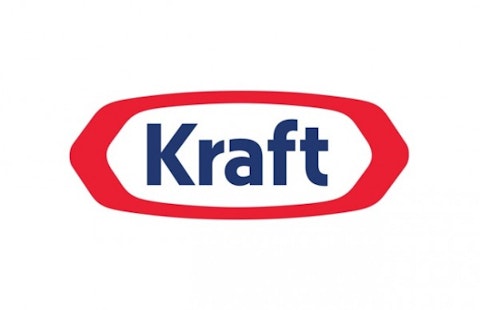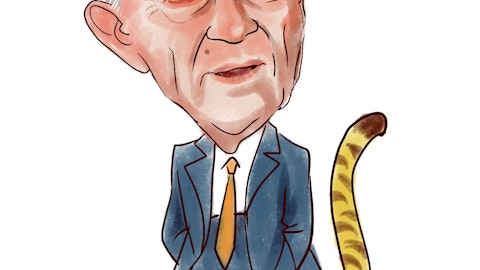Patrick McCormack’s Tiger Consumer Management is one of the many hedge funds seeded by Julian Robertson, the founder of Tiger Management, and like other of these so-called “Tiger seeds” it is housed at the same Park Avenue address Robertson’s legendary firm once called home. Obviously, as the name implies, Tiger Consumer Management is focused on the consumer sector. Below we take a look at their top consumer picks.
Who would’ve thought that hot dogs could go healthy? This is Kraft Foods’ (NYSE: KFT) new direction for its Oscar Mayer portfolio. It’s starting with the introduction of a new product line of hot dogs called Selects. Selects hot dogs are advertised as having no artificial preservatives, flavors or colors. KFT has relaunched six new hot dog flavors and five varieties of cold-cuts, abiding by the no artificial preservatives mantra. And with sales of more in $100 million in the first year of its launch in 2010, who can blame KFT? Now, KFT plans to make 20% of its Oscar Mayer portfolio without artificial preservatives by 2015.Adaptability in the ever fickle consumer taste business is key, and we are all for this strategy.
The other area that KFT is revamping is its gum brands marketing strategy in an effort to increase Trident and Stride sales. KFT’s gum division is taking a fresh approach to targeting teenagers, offering a 4-box gum rack for free in order to boost impulse buying and introducing gums that include graffiti-like designs. Trident is being repositioned to focus on selling consumers the emotional benefit versus the health benefits of gum. KFT has done an admirable job in rethinking its brands for the 21st century consumer, and this is only part of the reason for what we believe will be continued success for the company.
KFT competes with the likes of General Mills (NYSE:GIS) and Kellogg (NYSE:K) in addition to others. General Mills announced last week that it would acquire Brazilian food company Yoki for ~$875million USD. Yoki is a leading Brazilian food company and operates in snacks, convenient meals, grains, and seasonings. The deal will more than double GIS’ Latin America sales to ~$1 billion. Currently, most of GIS’ Latin America revenue comes from the Pillsbury acquisition. The deal should be EPS neutral by 2013 and accretive in 2014. This deal is in-line with other US-based food companies that are expanding geographically through M&A (Kraft/Cadbury, McCormick/Kamis, etc.). And GIS generates plenty of cash to make these types of acquisitions—$1.0+ billion annually after dividends.
As for Kellogg, since John Bryant became the CEO sixteen month ago, he has been doing nonstop damage control. There has been progress on the supply chain front and the Pringles acquisition should eventually serve as a catalyst, but overall, we don’t think it’s a very competitive company from a strategy or execution view. There still seems to be no clear answer as to why Kellogg saw such a huge decline in cereal. We agree with management and suspect the volume decline is due to people cleaning out their pantries as opposed to QSR restaurants like McDonald’s taking share. We are of the opinion that one of the few remaining hopes for the company is synergies and growth from Pringles, though that is probably a couple years out. If Kellogg follows through on its intent to implement productivity and cost-cutting initiatives at Pringles, we think the synergies will exceed what management had initially forecasted. Ultimately though, we don’t think Pringles integration will be a panacea for the European business given the weak macroeconomic environment. We believe KFT is a superior investment to both GM and Kellogg as does Patrick McCormack, who runs Tiger Consumer and other heavy hitters in the fund management world Nelson Peltz, Bill Ackman, and Warren Buffett (see Warren Buffett’s top picks).
Dollar General (NYSE: DG) just keeps getting more and more creative in traffic generation tactics. The latest is Redbox rental kiosks at DG stores. Research indicates that an average Redbox collects $47,000 in sales and with an average ticket of $2.28, it implies ~21,000 rentals per year. One analysis indicates that “if volumes run 25% of a typical Redbox and 30% of trips generated by Redbox are incremental, a typical DG could see 1.8% more customers wander through its stores.” Not bad, in our opinion. In addition to the Redbox strategy, DG has been introducing alcoholic beverages to its shelves, tinkering with fresh produce, and expanding the frozen sections in its markets. We believe that DG’s relentless iterations and commitment to improving core metrics will be a tour de force in the discount retail space.






